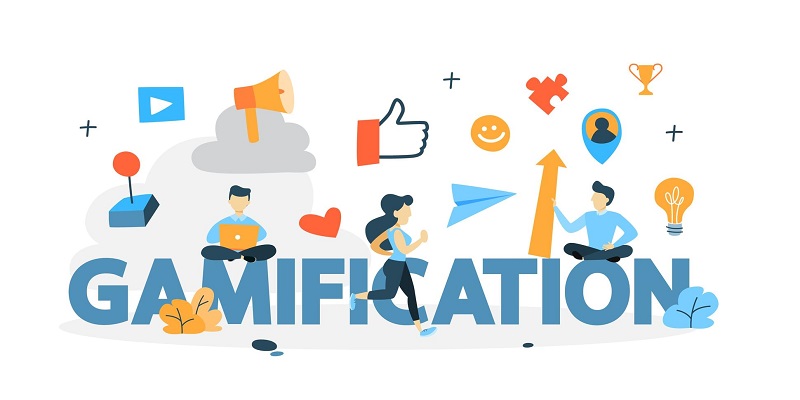
Knowledge is key for everything and over the years, teachers and researchers have tried multiple ways to create education more joyful and entertaining for students; from black board to smart board. As most of the schools are currently operating remotely, teachers and students are relying now more than ever on technology, and to keep students motivated, educational game based learning has come into the picture. In fact the global game-based learning market is expected to grow at a compound annual growth rate of 20.07 per cent over the forecast period to reach a market size of $17.079 billion in 2026, from $4.747 billion in 2019 as per research and markets.
To gamify the learning process is quite interesting for students, due to which innovators are trying to push gamification into everything. For example – Domino’s pizza, a global pizza chain, has created the Pizza Maker course, which is basically a training strategy that uses simulations and gamification to engage, evaluate and reward employees during the learning experience. By including elements that encouraged employees to try to improve past scores, the games have helped new employees master the menu sooner and make more accurate pizzas faster, thus decreasing onboarding time.

Trivia quiz is one of the types of game where gamification is used to sharpen the skill sets of students and employees. To shed light more on the gamification segment, AnimationXpress spoke to Zupee chief corporate and public affairs officer Dr Subi Chaturvedi.
A gamified trivia platform, Zupee runs 1000+ live Q&A tournaments everyday with 200+ content categories like Math, Sports, Chidiya Udd, spellings, movies, slang and general interest topics. Apart from that, they also make games which are universally popular, and aims to bring families together.
Chaturvedi shared, “Gamification of everything is a concept which employs principles of game science such as stages, points, challenges and scores to turn a non-game element, such as a book, an instruction manual or a mundane exercise into a competitive activity which is immediately more entertaining and rewarding. This has been scientifically proven to be a better way of learning and retention. As our mind seeks entertainment, an advanced level of gamification can hold the potential to have a lasting impact and stronger learning curve. This could lead to transforming traditional education into game-based learning, transforming corporate training manuals into a game for training, and therefore have better engagement and learning outcomes. Even military and corporate strategy can be taught utilising the same principles.”
There has been a misconception that the trivia quiz might not be gaming, to which she clarified, “A simple online search for the meaning of the word ‘game’ will tell you that a game is an activity that one engages in for amusement or fun. A stricter definition would be a contest or sport played according to rules with the players in direct opposition to each other. Either way, if you take part in a trivia quiz as a contest against other players and have fun doing it, you are gaming. For example, we add elements such as leader boards, multiplayer gameplay and rewards, elements of strategy, time bound decision making layers, and so on to make it more competitive and engaging. Yes, there is an element of knowledge and learning to a trivia quiz, but that doesn’t remotely imply that it is not gaming. Actually game-based learning used in education in many parts of the world heavily banks on trivia quizzes to boost memory and recall in students. So learning can be made fun and you can earn while you learn based on your skills.”
Because of gamification learning, parents and children are bonding over online games such as football, car racing, first-person aim-based games, and more. It has been an established practice in the west and is catching on in India. According to Chaturvedi, as the 80s and the 90s generation become parents, video games are becoming a popular bonding tool to have with their kids. “It is certainly becoming an activity that parents and children do together and build healthier and more meaningful relationships. With the smartphone becoming the preferred gaming device, families and friends are now playing online games, sometimes, from different parts of the world. This is a way of spending time that is more engaging and interactive. Gaming has evolved to be a common passion between children and adults alike helping them share quality time together. This is especially relevant in a post covid world,” she added.
Skill based online games especially the one where real money is involved are ensuring that kids don’t play/engage with. According to Chaturvedi, today skilled-based games include self-regulation through various age-recognition mechanisms and filters which helps the platforms to understand the players age as well as the little ones being restricted to enter. Apart from that, these games where money is involved, take payment either through credit cards or KYC approved payment mediums such as UPI, which is a big step towards ensuring age compliance.
“In addition, such games are not marketed for or to children. Most such games use digital marketing to reach their audiences and this form of marketing allows companies to target people by age and location, making sure that the product is only marketed to mature audiences only who can make their own financial decisions. All responsible gaming companies follow the self-regulatory skill gaming charter with notable experts including former judges, educationalists, sports champions, senior law enforcement officials, and mental health experts on the panel; they also ensure that safe and responsible gaming practices are built into their games as well in all their communication material. We at Zupee take this responsibility seriously and from workshops to in-game education, we follow and lead the conversation on responsible and ethical gaming practices,” she further added.
Zupee also involved RMG trivia where participants can win cash by playing trivia quizzes of which some are free to play and some are pay to play formats. Zupee is restricting little ones from accessing the platform since it involves real money. This way kids might avoid unintentional financial losses of their parents. “Our games are for people above the age of 18 only. We have age-verification login, disclaimers, and payment processes that strongly discourage underage play, including nudges within the game that inform players to log off at regular intervals. We are following the practices any reasonable, socially responsible and ethical OTT platform or shopping website would take to ensure that underage users don’t get to access their content or make purchases, whichever may be relevant,” she assured.
There is no end to learning. People from all ages can learn new things and Zupee helps individuals above 18 to not just learn through trivia quizzes but also helps them to win rewards and cash.
The company aims to grow its business and continue to build a business with purpose. “In the current uncertain times, when so many people are losing their jobs, we will be looking to double our current workforce and hire more people and in the process, do our bit for the country. We want to help people with their mental wellbeing, make their mind sharp and create the ability to learn new skills. We intend to create more gaming and gamification products that can further learning and education while empowering people with livelihood opportunities. We believe in gaming for all and are unlocking gaming for good. We’re leading the charge,” she shared.
Apart from that, Zupee intends to bring new products tapping knowledge and technology and aims to rediscover and reengineer the lost and forgotten games of India.
